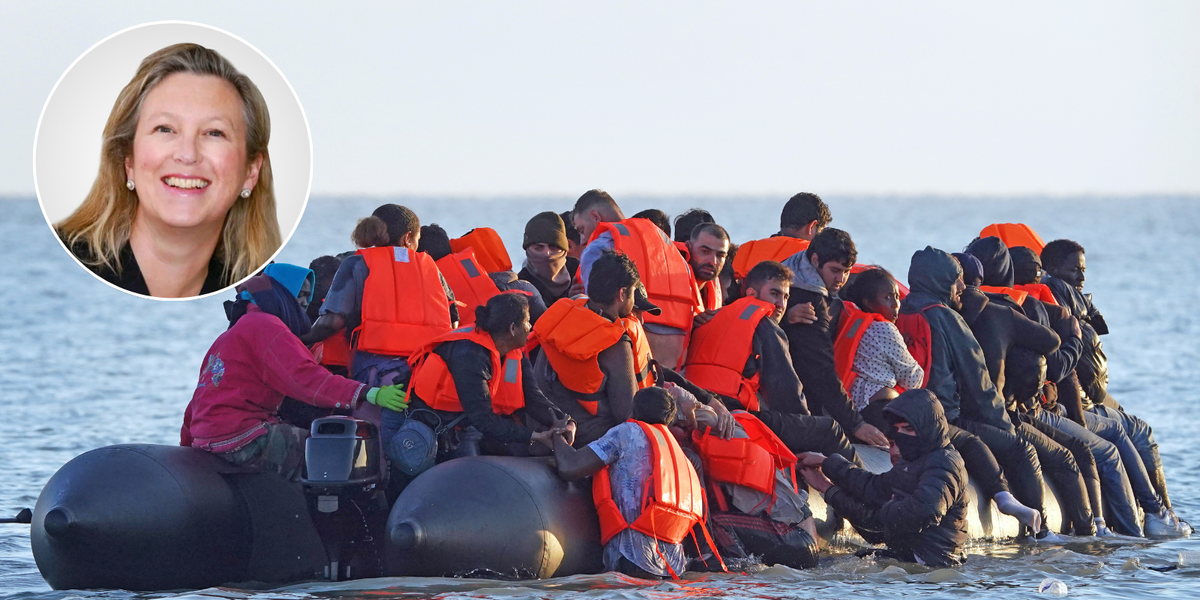Mass Migration: An Existential Crisis for the European Union
Mass migration has emerged as one of the most pressing challenges facing the European Union (EU) today. The uncontrolled influx of migrants has not only overwhelmed asylum systems but has also exposed the deep fractures in burden-sharing among member states. As Europe grapples with this crisis, it is clear that the current approach is inadequate, leading to significant social, economic, and political divisions across the continent.
The Reality of Mass Migration
For years, European leaders have viewed mass migration through a moral lens, often dismissing the potential dangers it poses. This naivety has resulted in a failure to address the harsh realities unfolding across Europe. The influx of migrants has led to a strain on resources, with many countries struggling to provide adequate support for those seeking asylum. The perception that migrants receive preferential treatment has further fueled resentment among citizens, undermining social cohesion and leading to violent tensions in various regions.
The Rise of Populism
The EU’s inability to effectively manage mass migration has given rise to populist and far-right parties, which have capitalized on public discontent. Many citizens feel that their concerns are being ignored by bureaucratic elites who are disconnected from the realities of their lives. This growing frustration has resulted in a political landscape that is increasingly polarized, with calls for stricter immigration policies gaining traction across many member states.
Cultural Integration Challenges
Cultural integration has become a significant challenge in the face of mass migration. Language barriers, differing social norms, and conflicting values have created an environment where integration is faltering. The lack of a cohesive strategy for fostering cultural understanding has exacerbated tensions, making it difficult for migrants and host communities to coexist peacefully. As a result, the very fabric of European societies is being tested.
Reactionary Policies and Their Consequences
In response to the crisis, EU countries have implemented a range of hasty and often reactionary policies. Germany, for instance, has reversed its open-door policy, reinstating border controls that have sparked controversy and debate. Conversely, Denmark has adopted a more pragmatic approach by treating asylum as a temporary status and reducing the number of economic migrants disguised as refugees. This strategy has not only curtailed illegal migration but has also depoliticized the issue, a feat that many other EU nations have struggled to achieve.
The EU’s Asylum and Migration Pact
The EU’s recent Asylum and Migration Pact represents an attempt at damage control. It proposes measures to expedite asylum processes and establish processing centers outside the EU. However, critics argue that these initiatives come too late and fail to address the core issues at hand. The pact does not ensure fair burden-sharing among member states, allowing those most affected to shoulder the responsibility while others evade it. Moreover, it neglects the root causes of migration, rendering it a temporary fix rather than a sustainable solution.
A Call for Decisive Action
As the crisis continues to unfold, decisive and robust action is imperative. The UK, as a founding member of the Council of Europe, recognizes the gravity of the situation. Established in the aftermath of World War II, the Council serves as a platform for European cooperation on human rights, democracy, and the rule of law. At the recent Council of Europe summit in Reykjavik, former UK Prime Minister Rishi Sunak urged European leaders to treat mass migration as a European-wide emergency rather than a national issue.
The Need for Coordinated Efforts
Sunak’s call for immediate, coordinated action highlights the urgency of addressing the humanitarian disaster that unchecked illegal migration threatens to unleash. This crisis will not resolve itself, nor will it be mitigated by half-hearted measures. Europe must prioritize responsible and bold immigration policies that uphold the rule of law, ensure transparent procedures, and treat migrants fairly yet firmly.
Conclusion: A Turning Point for Europe
The time for dithering is over. Europe stands at a critical juncture, where the decisions made today will shape the continent’s future. Without decisive action, the social fabric of Europe will continue to fray, and the chaos surrounding mass migration will only intensify. By turning this crisis into an opportunity for reform, Europe can restore order and create a more cohesive society that respects both the rights of migrants and the concerns of its citizens. The path forward requires courage, collaboration, and a commitment to addressing the complexities of mass migration head-on.
